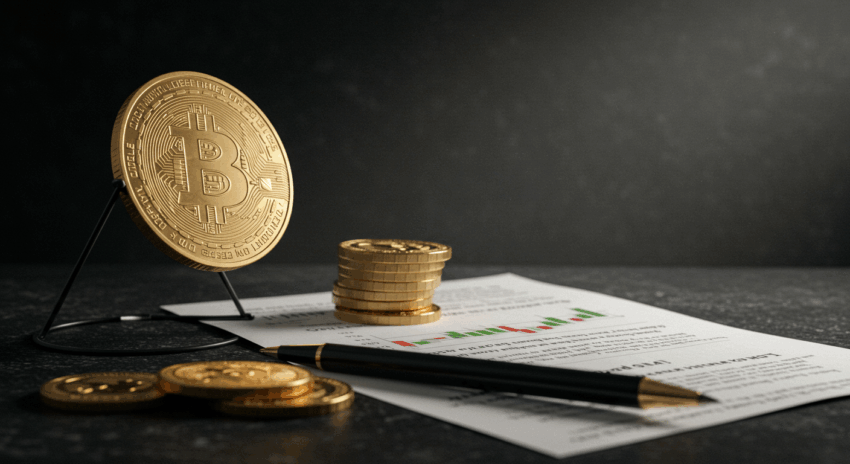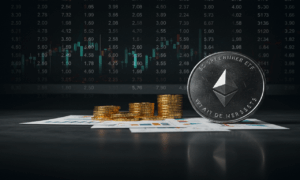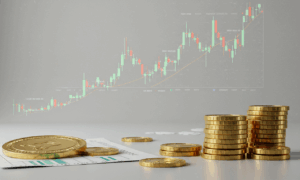The world of investment products has just witnessed a seismic shift, and if you’ve ever been curious about cryptocurrencies but hesitant about the complexity, this news is for you. In a landmark decision, regulators have given the green light to a new type of financial product: the spot Ether ETF. This development isn’t just jargon for Wall Street; it has the potential to fundamentally change how everyday people can invest in the digital asset space. This article will break down exactly what has happened, what these new products are, and what this regulatory approval could mean for your personal finance strategy, providing you with clear, actionable information.
Understanding this change is crucial, as it opens up a new avenue for portfolio diversification and brings a traditionally niche asset into the mainstream financial system. We will explore the mechanics, the opportunities, and, just as importantly, the risks involved.
Unpacking the Announcement: What is a Spot Ether ETF?
In late May 2024, the U.S. Securities and Exchange Commission (SEC), the primary government agency overseeing securities markets, approved key filings that pave the way for several major financial institutions to offer spot Ether exchange-traded funds (ETFs). To grasp the significance of this, let’s deconstruct the term.
- Ether (ETH): This is the native cryptocurrency of the Ethereum blockchain. While Bitcoin is often seen as digital gold, Ethereum is more like a decentralized global computer. It allows developers to build applications, from financial tools to social media platforms, on its network. Ether is the “fuel” that powers these operations, making it the second-largest cryptocurrency by market capitalization.
- Exchange-Traded Fund (ETF): You might already be familiar with ETFs. An ETF is an investment fund that is traded on stock exchanges, much like a regular stock. Think of it as a basket holding multiple assets. You can have an ETF that holds stocks from the S&P 500, another that holds bonds, and another that holds commodities like gold. When you buy a share of an ETF, you are buying a small piece of all the assets in that basket.
- Spot ETF: This is the most crucial part of the news. A “spot” ETF holds the actual, underlying asset directly. In this case, a spot Ether ETF will purchase and hold real Ether coins in secure storage. The value of your ETF share will directly track the market price—or “spot price”—of Ether.
This approval is a monumental step. For years, the only crypto-related ETFs available in the U.S. were based on futures contracts, which are complex derivatives that bet on the future price of an asset rather than holding the asset itself. The approval of a spot product is seen as a much stronger endorsement of the asset’s legitimacy by regulators.

The Key Difference: Why “Spot” is a Game-Changer
The distinction between a spot ETF and a futures ETF is not just technical; it has practical implications for investors. Understanding this difference is key to appreciating why this news is so significant for the broader investment landscape.
A futures-based ETF does not own any Ether. Instead, it invests in futures contracts, which are agreements to buy or sell Ether at a predetermined price on a future date. This structure can lead to a few issues for the average investor:
- Tracking Errors: The price of a futures ETF may not perfectly mirror the real-time price of Ether due to factors like contract rollover costs and market sentiment about future prices. This is known as “contango” or “backwardation” and can erode returns over time.
- Complexity: The underlying mechanics of futures markets are complicated and less intuitive for those not well-versed in advanced financial instruments.
In contrast, a spot ETF offers a much more direct and straightforward investment vehicle. By directly holding the Ether, its performance is tied directly to the asset’s current market value. This simplicity makes it a far more accessible and transparent product for retail investors. It’s the difference between owning a gold bar (spot) and owning a contract that says you will buy a gold bar in three months (futures). For most people, owning the bar is simpler to understand and value.
What This Means for You, the Everyday Investor
The introduction of spot Ether ETFs democratizes access to this digital asset class. Previously, investing in Ether required navigating a world that many find intimidating and technically challenging. This approval changes the entire dynamic.
1. Unprecedented Accessibility: The single biggest advantage is ease of access. To buy Ether before, you would typically need to:
- Sign up for a specialized cryptocurrency exchange.
- Go through its verification process.
- Learn about digital wallets and private key security.
- Worry about the safety and solvency of the exchange itself.
Now, you will be able to gain exposure to Ether through the same place you already manage your other investments: a standard brokerage account. If you have an account for buying stocks or other ETFs, you’ll be able to buy a spot Ether ETF with just a few clicks, right alongside your other holdings.
2. Enhanced Security and Regulation: The companies approved to offer these ETFs are some of the biggest and most trusted names in global finance, such as BlackRock, Fidelity, and Grayscale. These firms are subject to stringent regulatory oversight. The ETFs will hold the Ether in custody with highly secure, institutional-grade storage solutions. This mitigates many of the risks associated with holding crypto on an exchange, such as hacks or platform collapse.
3. A New Tool for Diversification: For those looking to diversify their portfolios, a spot Ether ETF offers a simple way to add a non-correlated asset. While past performance is no guarantee of future results, assets that don’t always move in the same direction as the stock market can help cushion a portfolio during downturns. You can learn more about different types of financial products on our blog to see how they fit into a diversified strategy.
A Necessary Disclaimer: Understanding the Inherent Risks
While the news is exciting, it is imperative to approach this new investment opportunity with caution and a clear understanding of the risks. This article is for informational purposes only and should not be considered investment advice.
Extreme Volatility: Cryptocurrencies, including Ether, are famously volatile. Their prices can experience dramatic swings in very short periods. An asset that can gain 20% in a week can also lose that much, or more, just as quickly. You should only invest an amount of money that you are fully prepared to lose. This is a high-risk, high-reward proposition and should only represent a small portion of a well-balanced investment portfolio.
The Future is Still Unwritten: While this SEC approval is a major step towards regulatory clarity, the long-term legal and regulatory framework for digital assets is still being built. Future government actions, both in the U.S. and abroad, could significantly impact the value of these assets.
The Bottom Line
The approval of spot Ether ETFs is more than just the launch of a new product; it’s a bridge between the worlds of traditional finance and the burgeoning digital economy. It provides a regulated, accessible, and familiar on-ramp for anyone curious about adding cryptocurrency exposure to their portfolio without the steep learning curve of direct ownership.
However, the convenience does not eliminate the fundamental risk of the underlying asset. As these products prepare to hit the market, potential investors should conduct thorough research, consider their personal risk tolerance, and perhaps consult with a qualified financial advisor. This development marks a new chapter in the story of finance and digital assets, and being well-informed is the first step to navigating it wisely.
Frequently Asked Questions (FAQ)
1. Now that spot Ether ETFs are approved, can I buy one today?
Not quite yet. The SEC has approved the initial rule change applications (known as 19b-4 filings). The next step is for the individual ETF issuers (the financial firms) to have their specific registration statements (S-1 filings) approved. Experts anticipate this could take anywhere from a few weeks to a few months. Once those are effective, the ETFs can begin trading on the stock exchanges.
2. Is investing in a spot Ether ETF the same as owning Ether directly?
From a price exposure perspective, it’s very similar. The value of your ETF shares will rise and fall with the market price of Ether. However, you do not directly own the Ether coins yourself. You own shares in a fund that owns the coins. This means you can’t use the Ether for transactions on the Ethereum network or store it in a personal digital wallet. The trade-off is convenience and custodial security in exchange for direct ownership and utility.





